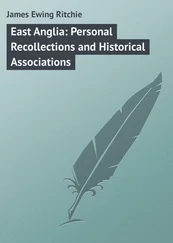James Ritchie - About London
Здесь есть возможность читать онлайн «James Ritchie - About London» — ознакомительный отрывок электронной книги совершенно бесплатно, а после прочтения отрывка купить полную версию. В некоторых случаях можно слушать аудио, скачать через торрент в формате fb2 и присутствует краткое содержание. Жанр: foreign_prose, на английском языке. Описание произведения, (предисловие) а так же отзывы посетителей доступны на портале библиотеки ЛибКат.
- Название:About London
- Автор:
- Жанр:
- Год:неизвестен
- ISBN:нет данных
- Рейтинг книги:4 / 5. Голосов: 1
-
Избранное:Добавить в избранное
- Отзывы:
-
Ваша оценка:
- 80
- 1
- 2
- 3
- 4
- 5
About London: краткое содержание, описание и аннотация
Предлагаем к чтению аннотацию, описание, краткое содержание или предисловие (зависит от того, что написал сам автор книги «About London»). Если вы не нашли необходимую информацию о книге — напишите в комментариях, мы постараемся отыскать её.
About London — читать онлайн ознакомительный отрывок
Ниже представлен текст книги, разбитый по страницам. Система сохранения места последней прочитанной страницы, позволяет с удобством читать онлайн бесплатно книгу «About London», без необходимости каждый раз заново искать на чём Вы остановились. Поставьте закладку, и сможете в любой момент перейти на страницу, на которой закончили чтение.
Интервал:
Закладка:
“Full many a fathom deep,”
as Mr. Campbell says, in a coal pit. Alas! the inspiration of wine is but short-lived. From his glorious dreams of marble halls the exciseman awoke; wonderingly he opened his eyes and looked around. Where was he? To what dark and dolorous shades had he been conveyed? That conscience which does make cowards of us all answered the question: – he had been for his sins conveyed to that fearful locality which a popular clergyman once told his hearers he would not shock their feelings by naming in so well-bred and respectable an assembly; there he was, far away from the light of the sun and the haunts of men. Everything around him was dark and drear. At length a faint glimmer of light appeared in the distance. It came nearer and nearer, by its light he saw a form he thought resembled the human, but of that he was not quite sure. The exciseman felt with Hamlet:
“Be thou a spirit of health or goblin damned.
Bring with thee airs from heaven or blasts from hell,
Be thy intents wicked or charitable,
Thou comest in such a questionable shape
That I will speak to thee.”
Accordingly he spoke, and very naturally asked the new-corner, “Who are you?” “Why, I was when I lived on earth an exciseman, but now I am – ” “You don’t say so,” exclaimed the interrogator, as sober as he ever was in his life. But the joke had now been carried far enough, and the exciseman gladly returned to the light of day, and the society of his fellow-man.
A coal pit, or rather a coal country, such as that you see around Merthyr Tydvil, or as you speed on by the Great Northern to Newcastle, does not give you a bad idea of Pandemonium. A coal pit is generally situated by the side of some bleak hill where there are but few signs of life. A cloud of smoke from the engine, or engines, hangs heavily all round. The workmen, of whom there may be hundreds, with the exception of a few boys, who stand at the mouth of the pit to unload the coal waggons as they come up, or to run them into the tram-road that connects them with the neighbouring railroad, or canal, are all under-ground. If you descend, a lighted candle is put into your hand, and you must grope your way as best you can. If the vein of coal be a pretty good one you will be able to walk comfortably without much trouble, but you must mind and not be run over by the coal waggons always passing along. As you proceed you will observe numerous passages on each side which lead to the stalls in which the men work, and hard work it is, I can assure you: a great block is first undermined, and then cut out by wedges driven into the solid coal; I believe the work is chiefly contracted for at so much a ton. In these little stalls the men sit, and dine, and smoke. Little else is to be seen in a coal pit. There are doors by which the air is forced along the different passages; there are engines by which the water is drained off; there is constant communication between the upper and the lower world, all going on with a methodical exactness which can only be violated with loss of life. Let the engines cease, and possibly in a couple of hours the pit may be filled with water. Let a workman, as is too often the case, enter his stall with a candle instead of with a safety lamp, and an explosion may occur which may be attended with the loss of many lives; but the rule is care and regularity, each man doing his part in a general whole. The mortality in coal mining is still unusually great. It is ascertained that of the total number of 220,000 persons employed as colliers, 1000 are killed annually – that is to say, the poor collier has 1000 more chances of being killed at his work than any one of the whole travelling public has of being killed or injured on English railways. Dr. Philip Holland read a paper on the subject at a recent meeting of the Society of Arts. He stated that out of 8015 deaths by accidents in eight years, 1984 (or about one-fourth) were caused by explosions. Remarkable it is, that in the northern counties of Durham and Northumberland (in which one-fourth of the coal is raised, and one-fifth of the collier population employed) the average deaths per annum from explosions do not exceed 21 out of 248; and as the average of such deaths for the whole country, including the Yorkshire, Lancashire, and Staffordshire districts, is 105, so 143 lives yearly are lost because the precautions against explosion proved to be effectual in the extreme north are neglected in all the other districts. Equally remarkable it is that falls of roof have caused nearly 1000 more deaths in the eight years than explosions, although the latter chiefly excite public feeling. Here, again, the extreme northern district affords a gratifying contrast with the others, as, out of an average of 371 such accidents yearly, only 49 occur there. It is suggested that the comparative immunity of the north from this cause of accident is attributable to the fact, that one man in six belongs to the safety staff, who are charged with the superintendence of ventilation, road, and prop making, &c. In other parts no such person is employed, and the men in their anxiety to get coal neglect these salutary means of safety. The next greatest number of fatal accidents occurs in the shafts, 1734 in the eight years. Here, again, the cautious north exhibits its superiority, its proportion of fatalities from this source not being more than a fifth part of the proportion throughout the country. Other fatalities there are, principally the result of bad discipline, the employment of too large a proportion of boys under fifteen years, the use of machinery where hand-pulling would be preferable, the narrowness of the galleries, and such like. Dr. Holland notices that the system of government inspection has, in the southern coal districts, led to the discontinuance of the services of “viewers,” or mine engineers, to direct the operations, which it never was intended to do. Either these viewers must, as a rule, be reinstated, or the government system of inspection must be enormously increased. Among the means suggested to prevent accidents is that of making the coal owner civilly responsible for accidents caused by the obvious neglect of reasonable precautions in the working. In the course of the discussion which followed, it was urged that the workers should no more be exempted from the penal consequences of neglect than the employers.
Fancy – I can do it easily, over my sea-coal fire – fancy the coal dug out of the pit, put into a waggon, that waggon put on a railway – travelling, it may be, some distance, and depositing its precious burden in a collier’s hold; imagine this collier put to sea, and safely arrived in the Thames. As Mr. Cobden said, “What next, and next?” Here a new agency comes into play, the coal cannot come right to my fire. We leave the collier at Gravesend and land, let us say, at Billingsgate – never mind the fish, nor the porters, nor the fair dealers in marine products. Come right away into Thames Street – cross it if you can, for this street, of all London streets, bears away the palm for being blocked up at all times and seasons, and this morning there has been a block lasting a couple of hours; but the people here are used to it, and do not think it worth while to have recourse to hard words, nor to repeat sounds very much like oaths, nor to grow red in the face and threaten each other, as is the case with the angry Jehus of Cheapside and Holborn Hill. We enter a handsome building by a semi-circular portico, with Roman Doric columns, and a tower 106 feet high. A beadle in magnificent livery, and of an unusually civil character – for beadledom is generally a terror to our species – meets us. We wish to see our friend; right into the middle of a busy group of coal dealers and factors the beadle rushes, and repeats the name of our friend; up one story, and then another, and then another, the sound ascends; our friend hears it, and, rapidly descending, gives us a welcome as warm as his own fire-side. We begin our voyage of discovery: – first we descend and examine a Roman well, in excellent preservation, discovered in excavating the foundation of the new building. The water looks thick and muddy, but they tell you it is clear: but the fact that it ebbs and flows seems to connect it with the Thames; and Thames water, when taken opposite Billingsgate, is not generally considered clear. We again ascend to the ground-floor, which is a rotunda sixty feet in diameter, covered by a glazed dome seventy-four feet from the floor. This circular hall has three tiers of projecting galleries running round it; the floor is composed of 4000 pieces of inlaid wood, in the form of a mariner’s compass; in the centre is the city shield, anchor, &c., the dagger blade in the arms being a piece of mulberry tree, planted by Peter the Great when he worked as a shipwright in Deptford Dockyard. The place is worth coming to see – country cousins ought to look at it; the entrance vestibule, Mr. Timbs, in his “Curiosities of London,” informs us, is richly embellished with vases of fruit, arabesque foliage, terminal figures, &c. In the rotunda, between the Raphaelesque scroll-supports, are panels painted with impersonations of the coal-bearing rivers of England – the Thames, Mersey, Severn, Trent, Humber, Aire, Tyne, &c.: and above them, within flower borders, are figures of Wisdom, Fortitude, Vigilance, Temperance, Perseverance, Watchfulness, Justice, and Faith. The arabesques in the first story are views of coal mines – Wallsend, Percy, Pit Main, Regent’s Pit, &c. The second and third storey panels are painted with miners at work; and the twenty-four ovals at the springing of the dome have, upon a turquoise blue ground, figures of fossil plants found in coal formations. The minor ornamentation is flowers, shells, snakes, lizards, and other reptiles, miners’ tools and nautical subjects; – there you can see all the process of coal mining, without troubling yourself to go down a mine, and in a small museum, too small for such a grand building and such a wealthy trade, curious specimens of fossil products and coal will make the observer still more learned; but let us look at the living mass beneath. Some of the men below are famous city names. There sometimes you may see Sir James Duke, who came to London a clerk, poor and under-paid, on board a man-of-war, and who on this Coal Exchange has made a colossal fortune, and who was made a baronet, he being at the time Lord Mayor, when the New Exchange was opened by Prince Albert, on the 29th Oct., 1849, accompanied by the Prince of Wales and the Princess Royal. Here oftener you may see Hugh Taylor, M.P., who began life as a cabin-boy, then became a captain, then was developed into a coal-owner, and who is said to be a perfect Midas, and possesses an art, very much, thought of by city people, of turning everything he touches into gold. On a door just below where we stand is inscribed the name of Lord Ward, for even noblemen don’t mind sullying their fingers with vulgar trade, if anything is to be made by it. And there is the name of a Welsh coal-owner, who, some fifty years back, was a clerk in a certain timber merchant’s, at a guinea a week, and who now, I believe, can raise and ship a couple of thousand tons of coal a day. Depend upon it there is some money made by these black diamonds, and the corporation of London know it, for they have managed to get a tax levied of one penny on every ton of coals, whether brought by sea or rail within thirty miles of where we stand. What they do with the enormous sum thus collected it is impossible to say; it is true they built this handsome Exchange, at a cost altogether of £91,167. 11s. 8d., but that is a small part of their receipts. When the tax was first levied it did not much matter; about the year 1550 one or two ships sufficed for the coal trade of London. On Friday, December 2nd, 1859, the number of ships with cargoes for sale on that day was not less than 340 – and on an average each ship employed in the coal trade carries 300 tons of coal. In the month of October alone there were brought into the London markets 283,849 tons by sea, and by rail 95,195 tons and three-quarters. Of course in winter time the trade is very brisk. The retail dealers in the metropolis will tell you that a few cold days make an enormous difference in the sale of coals, and the large dealers are driven to their wits’ end as to how they can find enough waggons and horses to enable them to supply their customers. In the large coal-yards in the winter time the men are at work from five in the morning till late, very late, at night. I am thankful for their industry, I hope they are well paid.
Читать дальшеИнтервал:
Закладка:
Похожие книги на «About London»
Представляем Вашему вниманию похожие книги на «About London» списком для выбора. Мы отобрали схожую по названию и смыслу литературу в надежде предоставить читателям больше вариантов отыскать новые, интересные, ещё непрочитанные произведения.
Обсуждение, отзывы о книге «About London» и просто собственные мнения читателей. Оставьте ваши комментарии, напишите, что Вы думаете о произведении, его смысле или главных героях. Укажите что конкретно понравилось, а что нет, и почему Вы так считаете.












